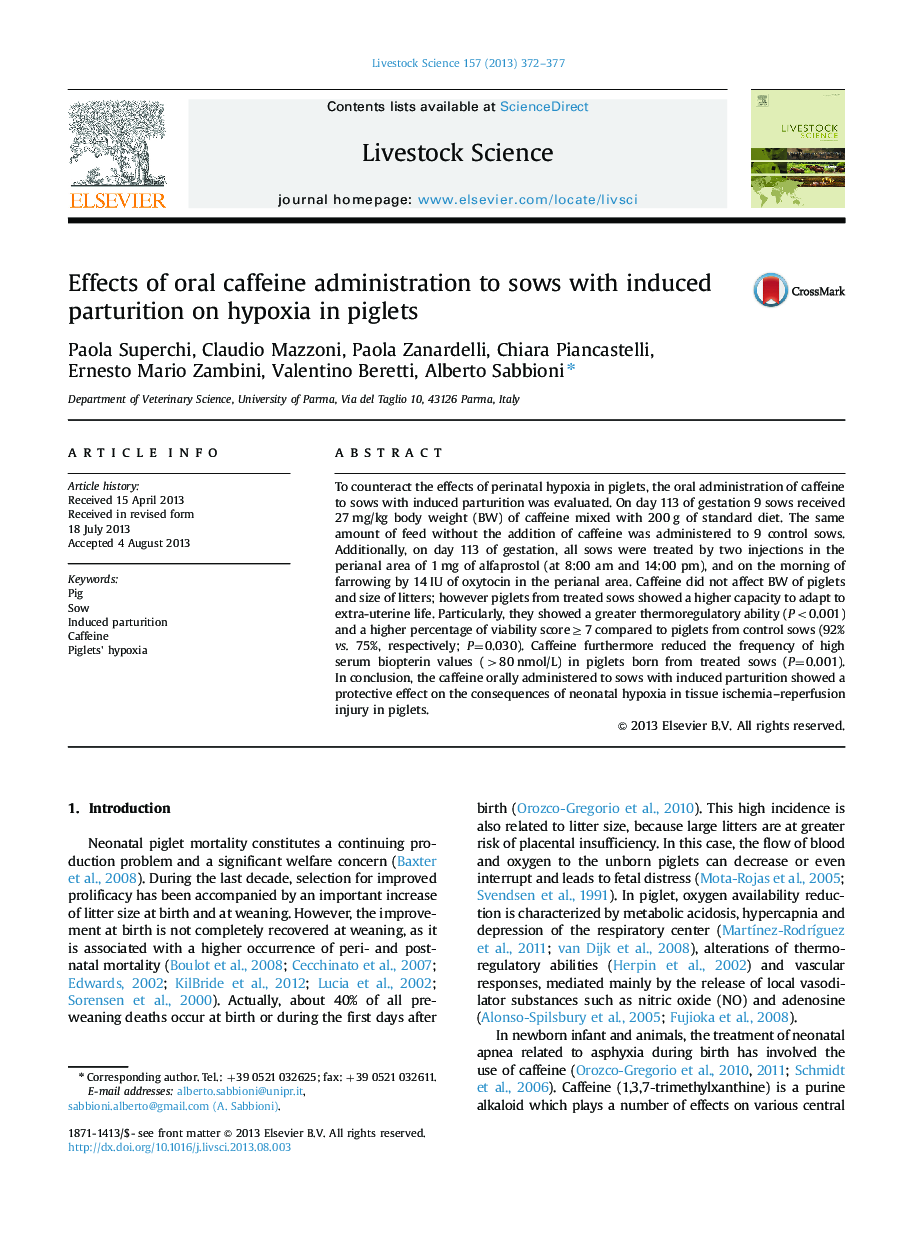| Article ID | Journal | Published Year | Pages | File Type |
|---|---|---|---|---|
| 5790384 | Livestock Science | 2013 | 6 Pages |
Abstract
To counteract the effects of perinatal hypoxia in piglets, the oral administration of caffeine to sows with induced parturition was evaluated. On day 113 of gestation 9 sows received 27 mg/kg body weight (BW) of caffeine mixed with 200 g of standard diet. The same amount of feed without the addition of caffeine was administered to 9 control sows. Additionally, on day 113 of gestation, all sows were treated by two injections in the perianal area of 1 mg of alfaprostol (at 8:00 am and 14:00 pm), and on the morning of farrowing by 14 IU of oxytocin in the perianal area. Caffeine did not affect BW of piglets and size of litters; however piglets from treated sows showed a higher capacity to adapt to extra-uterine life. Particularly, they showed a greater thermoregulatory ability (P<0.001) and a higher percentage of viability scoreâ¥7 compared to piglets from control sows (92% vs. 75%, respectively; P=0.030). Caffeine furthermore reduced the frequency of high serum biopterin values (>80 nmol/L) in piglets born from treated sows (P=0.001). In conclusion, the caffeine orally administered to sows with induced parturition showed a protective effect on the consequences of neonatal hypoxia in tissue ischemia-reperfusion injury in piglets.
Keywords
Related Topics
Life Sciences
Agricultural and Biological Sciences
Animal Science and Zoology
Authors
Paola Superchi, Claudio Mazzoni, Paola Zanardelli, Chiara Piancastelli, Ernesto Mario Zambini, Valentino Beretti, Alberto Sabbioni,
